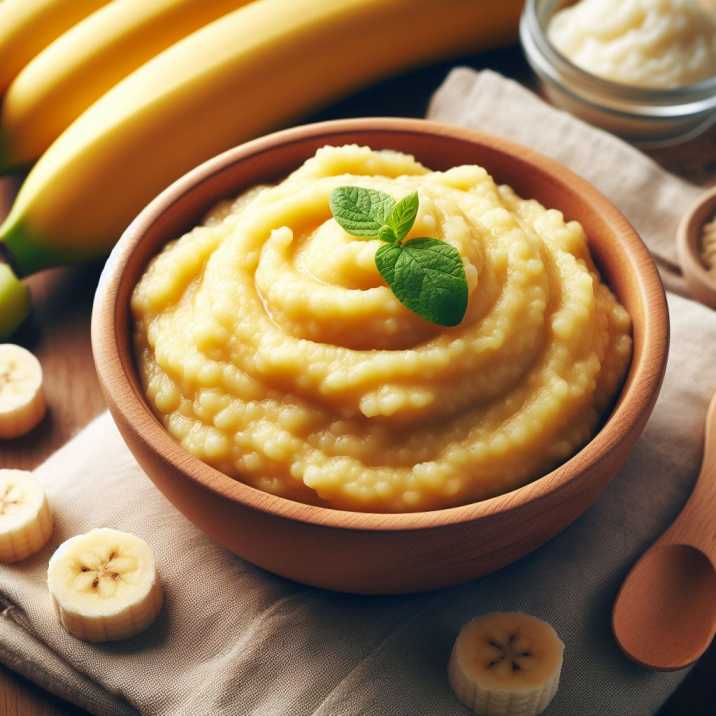Baby Bananas to Infants as a First Food
Table of Contents
When it comes to introducing solid foods to your little one, baby bananas can be a delicious and nutritious option. Baby bananas are not only easy to digest but also packed with essential nutrients that are beneficial for your infant’s growth and development. In this article, we’ll delve into the various aspects of how to introduce baby bananas to infants as a first food.

Why Choose Baby Bananas to Infants as a First Food?
Baby bananas, also known as mini bananas or finger bananas, are a popular choice for introducing solids to infants for several reasons. These bananas are small in size, making them easy for tiny hands to grasp and eat. Additionally, they have a soft texture and a mild flavor, which is gentle on the baby’s delicate palate.
Tips for Introducing Baby Bananas to Infants as a First Food
Choose Ripe Baby Bananas:
Opt for ripe baby bananas that are soft and slightly sweet. Ripe bananas are easier for infants to digest and have a smoother texture, making them ideal for first-time eaters.
Mash or Puree:
Depending on your baby’s age and readiness, you can either mash or puree baby bananas to a smooth consistency. This makes it easier for your little one to swallow and digest.

Start with Small Portions:
Begin by offering small portions of mashed or pureed baby bananas to your infant. This allows them to get used to the new taste and texture gradually.
Mix with Breast Milk or Formula:
If your baby is still breastfeeding or formula feeding, you can mix mashed baby bananas with breast milk or formula to create a familiar taste.
Observe for Allergies:
As with any new food, it’s essential to watch for signs of allergies or sensitivities when introducing baby bananas. Start with a small amount and monitor your baby for any adverse reactions such as rashes, hives, or digestive issues.
Nutritional Benefits of Baby Bananas
Despite their small size, baby bananas are packed with essential nutrients that are beneficial for infants. These include:
- Potassium: Baby bananas are rich in potassium, which is essential for maintaining healthy blood pressure and heart function.
- Vitamin C: They also contain vitamin C, an antioxidant that supports the immune system and aids in the absorption of iron.
- Fiber: Baby bananas are a good source of dietary fiber, which helps promote healthy digestion and prevent constipation in infants.
- Natural Sugars: While baby bananas contain natural sugars, they are lower in sugar compared to mature bananas, making them a suitable option for babies.
Conclusion
Introducing baby bananas to infants as their first food can be an exciting and nutritious experience for both you and your little one. By following the tips and insights provided in this article, you can ensure a smooth transition to solid foods while providing your infant with essential nutrients for their growth and development.
FAQs about Introducing Baby Bananas to Infants
- When can I introduce baby bananas to my infant?
- You can start introducing baby bananas to your infant around six months of age, when they are ready for solid foods.
- Can I give my baby whole baby bananas to eat?
- While baby bananas are small in size, it’s best to mash or puree them for infants to prevent choking hazards.
- How often can I feed baby bananas to my infant?
- You can offer baby bananas to your infant as part of their solid food diet, but it’s essential to offer a variety of fruits and vegetables to ensure a balanced diet.
- Are there any safety precautions to keep in mind when feeding baby bananas to infants?
- Always supervise your infant when they are eating, and ensure that baby bananas are mashed or pureed to a suitable consistency to prevent choking.
- Can I freeze baby bananas for later use?
- Yes, you can freeze mashed baby bananas in an airtight container for later use. Thaw them in the refrigerator before serving to your infant.
